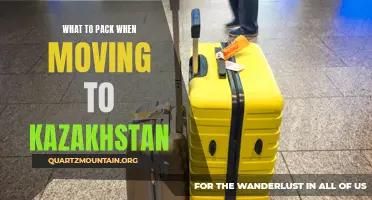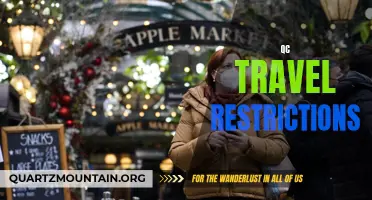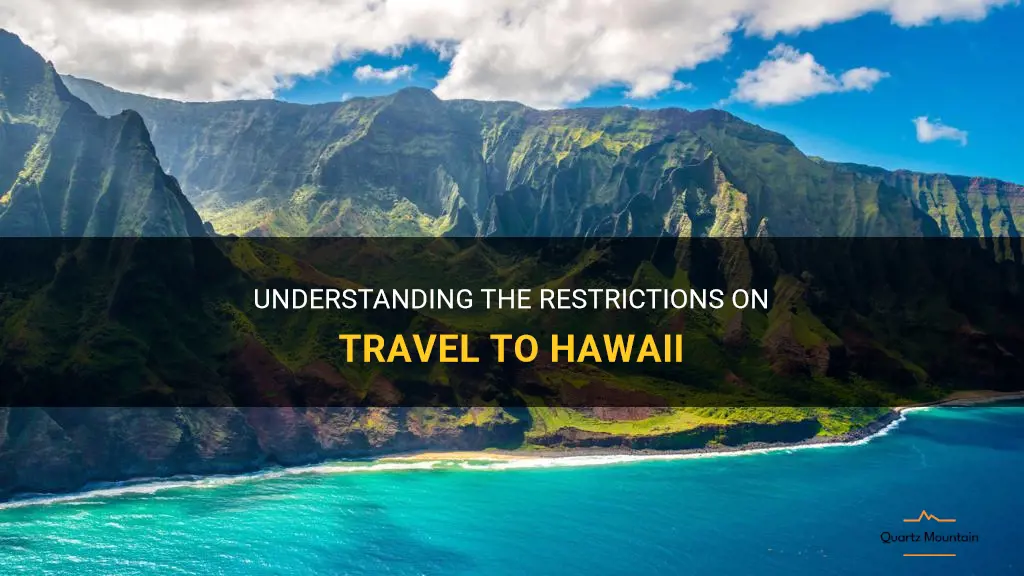
Emerald green landscapes, pristine beaches, and a paradise that seems to exist outside of time - this is the allure of Hawaii, the quintessential dream destination. However, the COVID-19 pandemic has brought unprecedented challenges, forcing us to reevaluate our plans and adapt to new restrictions. Travel to Hawaii, like most other destinations, is not exempt from these limitations. Despite being known as the Aloha State, Hawaii has implemented certain restrictions to protect the health and safety of both visitors and locals. In this article, we will explore the current travel restrictions in Hawaii and the necessary measures to enjoy this island paradise responsibly.
What You'll Learn
- What are the current travel restrictions in place for Hawaii?
- Are there any exceptions to the travel restrictions for certain individuals or groups?
- Is it possible to travel to Hawaii without facing any quarantine requirements?
- Are there any specific COVID-19 testing requirements for travelers to Hawaii?
- Can I book a trip to Hawaii now or should I wait until the travel restrictions are lifted?

What are the current travel restrictions in place for Hawaii?

As the COVID-19 pandemic continues to evolve, travel restrictions and guidelines are being implemented to ensure the safety of residents and visitors. If you are planning a trip to Hawaii, it's essential to understand the current travel restrictions in place.
As of now, Hawaii has a pre-travel testing program that allows travelers to bypass the mandatory quarantine requirement if they meet certain criteria. Here are the key details:
- Pre-Travel Testing Program: To avoid the 10-day quarantine upon arrival, travelers must take a COVID-19 test from an approved testing partner. The test must be taken within 72 hours before departing for Hawaii. Only tests approved by the Hawaii State Department of Health are acceptable.
- Negative Test Result: Travelers must upload their negative test result to the Safe Travels Hawaii account before boarding their flight. Without a negative test result, travelers will be subject to the mandatory quarantine.
- Testing Requirements for Children: Children five years and older must also take a COVID-19 test to avoid the quarantine. For children under five, a pre-travel test is not required, but they must still be listed on the adult's travel information.
- Inter-Island Travel: Starting July 8, 2021, inter-island travelers can be exempt from quarantine if they have been fully vaccinated within the state of Hawaii. This exemption applies to individuals vaccinated in Hawaii only.
- Vaccination Verification: To be eligible for quarantine exemption, travelers must have received the full dose of the COVID-19 vaccine, with the final dose administered at least 14 days before arrival. Vaccinated travelers must also register on the Safe Travels Hawaii account and upload their vaccine card.
It's important to note that these travel restrictions and requirements may change, so it's advisable to check the official Hawaii Tourism Authority website or consult with your travel agent before your trip. Additionally, travelers should also be aware of any testing or travel requirements imposed by their airline.
In summary, Hawaii currently has a pre-travel testing program in place to allow travelers to bypass the mandatory quarantine. By taking a COVID-19 test within 72 hours before departure and uploading a negative result to the Safe Travels Hawaii account, travelers can enjoy their trip without the need for quarantine. Vaccinated inter-island travelers are also exempt from quarantine, but only if they received the vaccine in Hawaii. Stay informed about the latest updates and have a safe and enjoyable trip to Hawaii!
Understanding Garment Bag Carry-On International Travel Restrictions
You may want to see also

Are there any exceptions to the travel restrictions for certain individuals or groups?
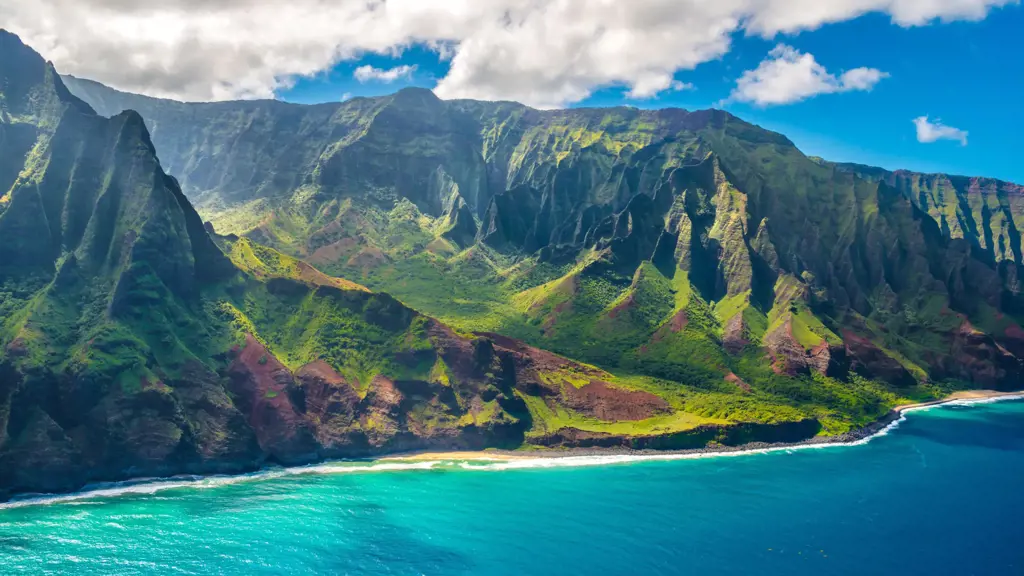
As the world continues to grapple with the COVID-19 pandemic, many countries have implemented travel restrictions to protect their citizens and prevent the spread of the virus. These restrictions often include limitations on who can enter the country and under what circumstances. However, there are some exceptions to these travel restrictions for certain individuals or groups.
One common exception is for citizens or residents of the country. Many countries allow their own citizens and permanent residents to return home, even if there are travel restrictions in place. This is seen as a basic right and is often prioritized when implementing travel restrictions. However, individuals returning home may still be subject to mandatory quarantine or other health measures.
Another exception is for essential workers. Many countries have recognized the importance of maintaining critical services and have allowed certain individuals to travel for work purposes. These essential workers may include healthcare professionals, emergency responders, and individuals involved in the transportation of goods or services. These individuals may be required to provide proof of their essential status, such as a letter from their employer or an identification card.
In some cases, diplomats and government officials may also be exempt from travel restrictions. This is because diplomatic relations between countries are considered essential and require the participation of diplomats and government representatives. These individuals may be subject to specific protocols and procedures upon arrival, such as diplomatic immunity or quarantine measures.
Additionally, some countries have established travel bubbles or corridors with neighboring countries or regions. These agreements allow for limited travel between specific areas without the need for quarantine or other restrictions. This is often done to facilitate economic activities and promote regional cooperation. However, the eligibility for these travel bubbles may vary and depend on factors such as the local COVID-19 situation and mutual agreements between countries.
It is important to note that the exceptions to travel restrictions can vary significantly from country to country. Each country has the autonomy to determine who is exempt from their travel restrictions and under what circumstances. It is crucial for individuals planning to travel to stay updated on the latest travel advisories and guidelines issued by their own government and the authorities of the destination country.
In conclusion, while travel restrictions are in place to limit the spread of COVID-19, there are some exceptions for certain individuals or groups. These exceptions commonly include citizens and residents returning home, essential workers, diplomats, and individuals traveling within established travel bubbles. However, the specific eligibility and requirements for these exceptions can vary from country to country. It is important for individuals to stay informed and follow the guidelines provided by relevant authorities when planning their travel.
Navigating Dubai's Travel Restrictions: What You Need to Know
You may want to see also

Is it possible to travel to Hawaii without facing any quarantine requirements?
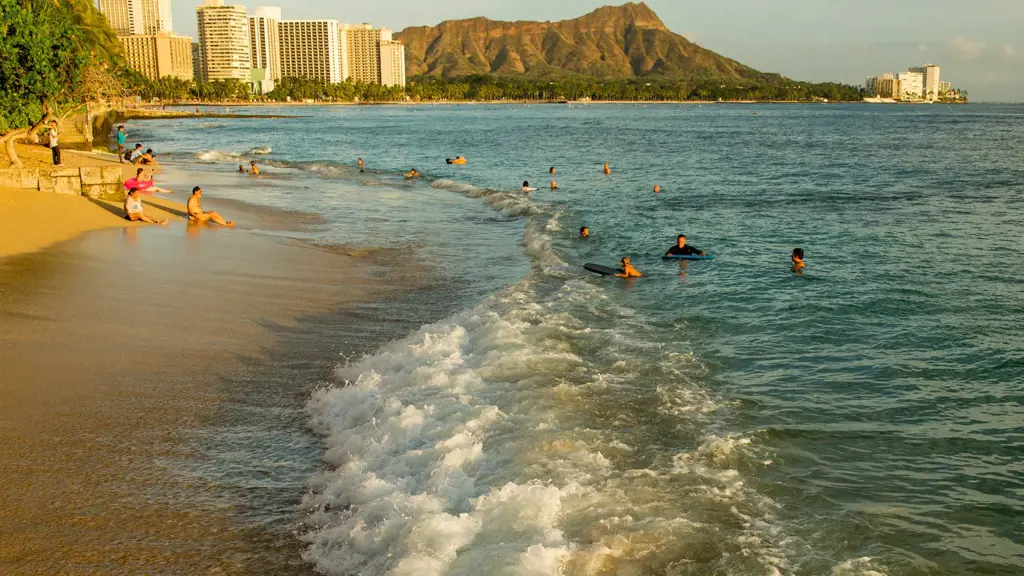
Hawaii, a tropical paradise known for its stunning beaches and lush landscapes, has always been a popular vacation destination. However, with the ongoing COVID-19 pandemic, traveling to Hawaii has become more complicated due to various quarantine requirements. Many travelers who are eager to return to the islands are wondering if it is possible to visit Hawaii without facing any quarantine restrictions.
As of September 2021, travelers who are fully vaccinated can visit Hawaii without being required to quarantine upon arrival. To be considered fully vaccinated, travelers must have received their final dose of a COVID-19 vaccine at least 14 days before their arrival. They are also required to upload their vaccination records to the Safe Travels Hawaii program, which is an online travel and health form that travelers need to complete before their trip. The accepted vaccines for entry into Hawaii are those authorized by the U.S. Food and Drug Administration (FDA) or the World Health Organization (WHO).
It's important to note that travelers who are not fully vaccinated or do not provide proof of vaccination will still be subject to the quarantine requirements. Unvaccinated travelers must undergo a mandatory 10-day self-quarantine upon arrival or until they receive a negative COVID-19 test result. The test must be taken within 72 hours before departure from the final leg of their trip to Hawaii.
To ensure a hassle-free trip to Hawaii, it is recommended that travelers plan ahead and stay updated on the latest travel requirements. This includes checking for any updates or changes to the rules and regulations. The official website of the Hawaii Tourism Authority is a reliable source for accurate and up-to-date information on travel requirements.
In addition to vaccination and testing requirements, travelers should also be aware of other health and safety measures in place in Hawaii. These may include wearing face masks in public areas, practicing social distancing, and following any local guidelines or restrictions. It is essential for travelers to respect and adhere to these measures to protect themselves and the local Hawaiian communities.
While the vaccination and testing requirements for traveling to Hawaii may seem stringent, they are put in place to ensure the safety and well-being of both residents and visitors. The aim is to minimize the spread of COVID-19 and to allow for a safe reopening of tourism in the state. By following the guidelines and requirements, travelers can enjoy a much-needed vacation in the beautiful islands of Hawaii without facing any quarantine restrictions.
Navigating the Current England Travel Restrictions: What Visitors Need to Know
You may want to see also

Are there any specific COVID-19 testing requirements for travelers to Hawaii?
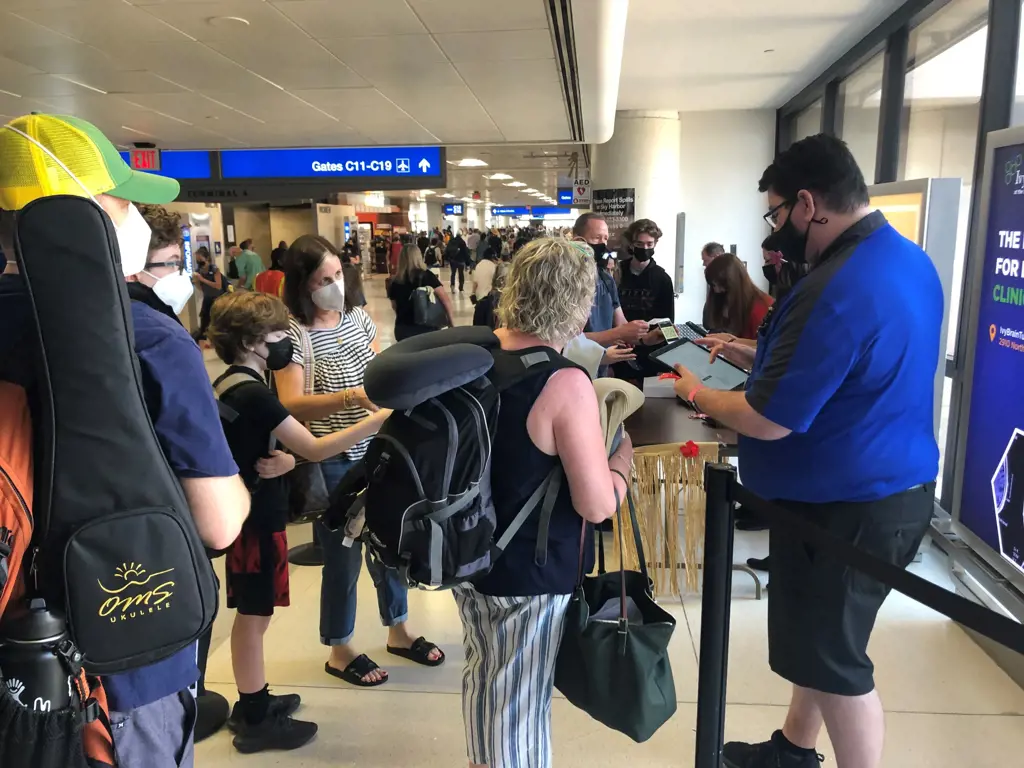
As the COVID-19 pandemic continues to impact travel, it's important for travelers to stay updated on the latest testing requirements. If you are planning to travel to Hawaii, there are specific COVID-19 testing requirements that you need to be aware of. These requirements are put in place to ensure the safety of both residents and visitors.
All travelers to Hawaii, regardless of age or vaccination status, are required to provide a negative COVID-19 test result before their departure to the state. The test must be taken within 72 hours of the final leg of departure to Hawaii. This means that if you have a layover in another state before arriving in Hawaii, the test must be taken within 72 hours of that final leg.
The accepted types of tests for entry into Hawaii are nucleic acid amplification tests (NAAT) or molecular tests conducted by a certified laboratory. This includes tests such as PCR (polymerase chain reaction) tests. Antigen tests are not accepted for entry into Hawaii. It's important to ensure that the test you take meets the requirements set by the State of Hawaii.
In addition to the negative test result, travelers will also need to complete the Safe Travels online travel and health form. This form includes personal information, travel details, and the test result. It must be completed within 24 hours of departure to Hawaii. After completing the form, travelers will receive a QR code, which will be scanned upon arrival in Hawaii.
Failure to provide a negative test result or complete the Safe Travels form may result in a mandatory 10-day quarantine upon arrival. It's important to comply with these requirements to avoid any unnecessary inconvenience.
It's worth noting that the requirements may vary for inter-island travel within Hawaii. Some islands may have additional testing requirements or restrictions in place. Travelers should check the specific guidelines for their island of destination.
As the situation continues to evolve, it's recommended to monitor the official website of the State of Hawaii or consult with a travel advisor for the most up-to-date information on COVID-19 testing requirements for travelers. Following these guidelines will help ensure a smooth and safe travel experience to the beautiful islands of Hawaii.
DHS Imposes Travel Restrictions from Mexico amid Security Concerns
You may want to see also

Can I book a trip to Hawaii now or should I wait until the travel restrictions are lifted?
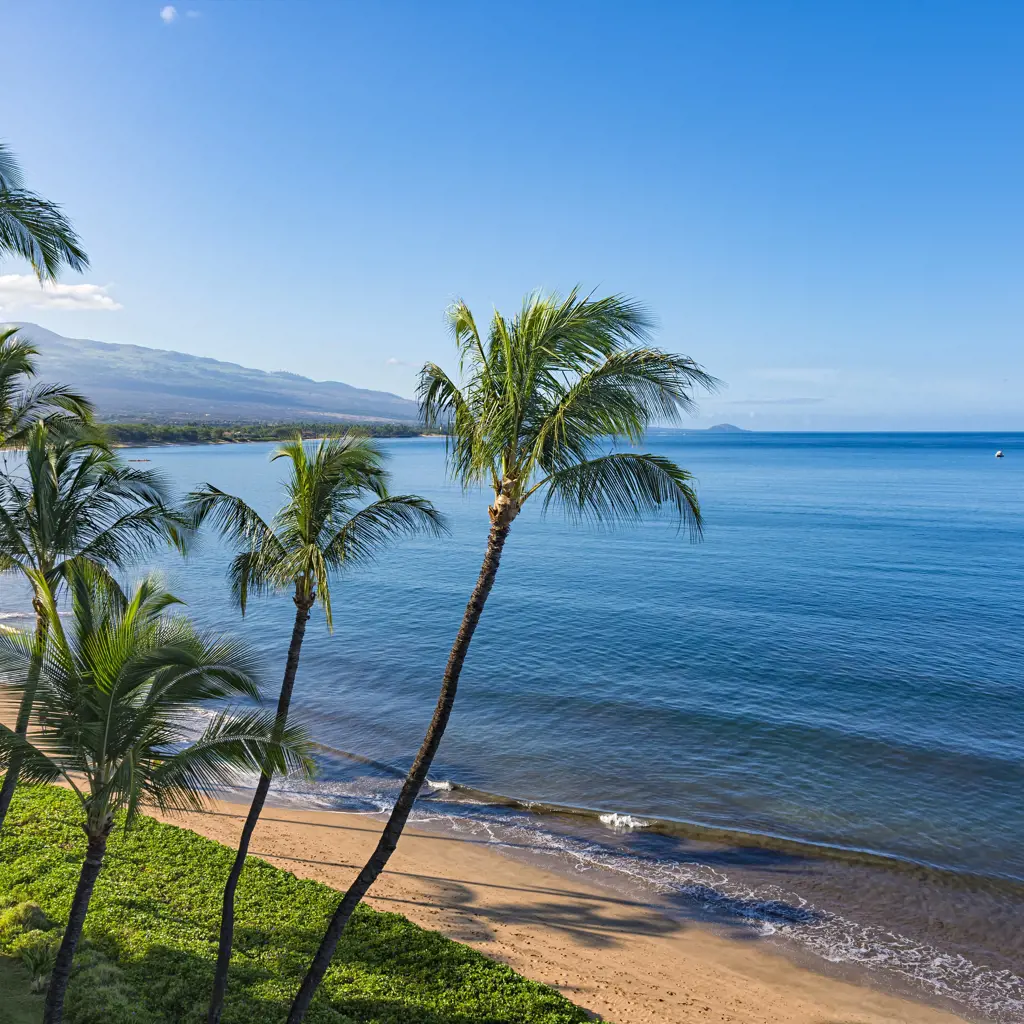
Whether or not you should book a trip to Hawaii now or wait until the travel restrictions are lifted is a personal decision that depends on your individual circumstances and preferences.
Firstly, it is important to consider the current travel restrictions in place for Hawaii. As of now, there are some restrictions for travelers entering Hawaii, including a mandatory 10-day quarantine for all incoming travelers, unless they provide a negative COVID-19 test result. These restrictions may impact your ability to enjoy your trip fully, as you would be required to quarantine for a significant portion of your stay.
Additionally, it is crucial to stay updated on the latest guidelines and advisories from the Centers for Disease Control and Prevention (CDC), as well as state and local health departments. Travel restrictions and guidelines can change rapidly, so it is important to consider the most up-to-date information before making a decision.
Another factor to consider is the current state of the COVID-19 pandemic. While vaccines are being rolled out and infection rates may be decreasing in some areas, the situation is still evolving. There is still a level of uncertainty about the future, including the emergence of new variants or potential surges in cases. It is essential to assess the overall risk before making any travel plans.
If you decide to book a trip to Hawaii now, it is vital to be prepared and flexible. Many travel companies and accommodations have implemented flexible booking policies, allowing you to reschedule or cancel your trip with minimal or no penalties if circumstances change. It is advisable to choose reputable companies that offer such flexibility and have clear cancellation policies.
Additionally, it is crucial to take precautions to protect yourself and others during your trip. This includes following all public health guidelines, wearing masks, practicing social distancing, and frequently washing hands or using hand sanitizers. Being mindful of these measures can help minimize the risk of COVID-19 transmission and contribute to keeping yourself and others safe.
In conclusion, deciding whether to book a trip to Hawaii now or wait until the travel restrictions are lifted is a personal decision that should be based on several factors, including current travel restrictions, the state of the pandemic, and individual risk tolerance. It is important to stay informed and consider the most up-to-date information from trusted sources before making any travel plans. Additionally, it is crucial to take appropriate precautions and choose travel companies with flexible booking policies to ensure a safe and enjoyable trip.
A Breakdown of Current Driving and Travel Restrictions Across the United States
You may want to see also
Frequently asked questions
Yes, travel to Hawaii is currently restricted due to the COVID-19 pandemic. The state has implemented a mandatory 10-day quarantine for all incoming travelers, unless they test negative for the virus prior to arrival. This applies to both tourists and residents returning to Hawaii. The quarantine can be avoided by taking a COVID-19 test from a trusted testing partner within 72 hours of departure and receiving a negative result.
Yes, there are some exemptions to the travel restrictions in Hawaii. Essential workers, including healthcare professionals, are allowed to travel to the state without needing to quarantine. Additionally, military personnel traveling on official orders and individuals seeking medical treatment can also be exempt from the quarantine requirement. However, it is important to check the latest guidelines and requirements before planning any travel to Hawaii, as they may change frequently.
Breaking the travel restrictions in Hawaii can result in penalties and fines. Violators of the mandatory quarantine can face a maximum penalty of up to $5,000 and up to a year in jail. The state has implemented strict protocols and enforcement measures, including checking for negative test results upon arrival and conducting random checks throughout the 10-day quarantine period. It is important to adhere to these restrictions to ensure the health and safety of the local community and to avoid any legal consequences.




